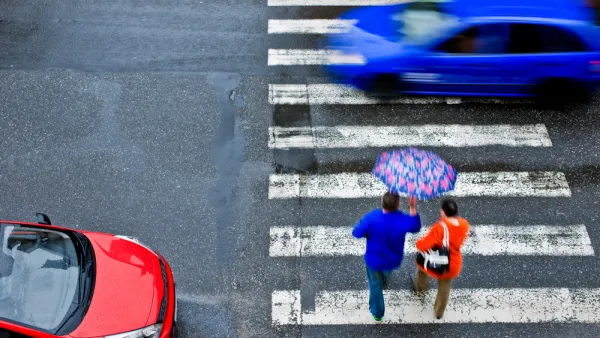A new report by the insurance industry studying the relationship between crashes and legalized recreational marijuana sales found that crashes can be expected to increase by three percent. A news report from Denver questions their findings.
Recreational marijuana was legalized in Washington and Colorado for adults 21 and older in 2014, about two years after both states passed propositions in November 2012. Oregon followed suit in 2014, with sales beginning a year later.
The new study, "High Claims: Legalizing recreational marijuana use is linked to increase in crashes," found that "collision claims frequencies are about 3 percent higher [in the three states] overall than would have been expected without legalization." The study was released June 22 by the Highway Loss Data Institute which conducts scientific studies of insurance data for the Insurance Institute for Highway Safety, "an independent, nonprofit scientific and educational organization dedicated to reducing ....crashes on the nation's roads."
Colorado saw the biggest estimated increase in claim frequency compared with its control states. After retail marijuana sales began in Colorado, the increase in collision claim frequency was 14 percent higher than in nearby Nebraska, Utah and Wyoming. Washington's estimated increase in claim frequency was 6 percent higher than in Montana and Idaho, and Oregon's estimated increase in claim frequency was 4 percent higher than in Idaho, Montana and Nevada.
The reason why the "combined effect" for the three states is smaller, three percent, is because that analysis "uses a bigger control group and is a good representation of the effect of marijuana legalization overall," states Matt Moore, senior vice president of HLDI. "The single-state analyses show how the effect differs by state."
However, a spokesperson for the Colorado State Patrol didn't express support for institute's findings, reports Karen Morfitt for CBS Denver. "[T]he data simply isn’t there," said Colorado State Trooper Josh Lewis.
“Ultimately when it comes down to its one more thing that we are looking at… but marijuana is not new,” Lewis said.
The institute's findings appear to be consistent with reports showing an escalation of driving under the influence of drugs (DUID), posted here in 2015 and in April. A Washington Traffic Safety Commission report in 2015 found a similar correlation but advised that more research be done.
“Worry that legalized marijuana is increasing crash rates isn’t misplaced,” says David Zuby, Executive Vice President and Chief Research Officer of the Insurance Institute for Highway Safety.
FULL STORY: Legalizing recreational marijuana is linked to increased crashes

Analysis: Cybertruck Fatality Rate Far Exceeds That of Ford Pinto
The Tesla Cybertruck was recalled seven times last year.

National Parks Layoffs Will Cause Communities to Lose Billions
Thousands of essential park workers were laid off this week, just before the busy spring break season.

Retro-silient?: America’s First “Eco-burb,” The Woodlands Turns 50
A master-planned community north of Houston offers lessons on green infrastructure and resilient design, but falls short of its founder’s lofty affordability and walkability goals.

Test News Post 1
This is a summary

Analysis: Cybertruck Fatality Rate Far Exceeds That of Ford Pinto
The Tesla Cybertruck was recalled seven times last year.

Test News Headline 46
Test for the image on the front page.
Urban Design for Planners 1: Software Tools
This six-course series explores essential urban design concepts using open source software and equips planners with the tools they need to participate fully in the urban design process.
Planning for Universal Design
Learn the tools for implementing Universal Design in planning regulations.
EMC Planning Group, Inc.
Planetizen
Planetizen
Mpact (formerly Rail~Volution)
Great Falls Development Authority, Inc.
HUDs Office of Policy Development and Research
NYU Wagner Graduate School of Public Service




























